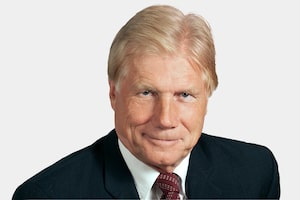At their 50th anniversary celebrations on the weekend, the New Democrats began in earnest the process of trying to prove to Canadians that their second-place status is more than a freak accident.
To be taken seriously in their quest for governance, they have to do three things. They have to come across as a moderate party that isn't tied to the hard left. They have to show themselves to be a party of fiscal rectitude as opposed to recklessness. And given the numerical dominance of Quebec MPs in their caucus, they must guard against being seen in the rest of Canada as beholden to Quebec nationalists.
At their Vancouver convention, the danger of being stereotyped confronted them in the form of a resolution that asked: Should the word "socialism" be deleted from the party's constitution? The harder-line element argued that it would be an insult to the legacy of Tommy Douglas to abandon the label, while others such as Manitoba's Pat Martin said the dated labelling would hold the party back. The question threatened to split the convention, but the party brass came up with a dodge: They referred the debate to the executive council for further study. It was the right move, and they'd be wise to let that study go on forever.
On the matter of fiscal responsibility, party leader Jack Layton, whose state of health remains a significant question, has long emphasized the record of provincial NDP governments in balancing budgets. The exception, he said at the convention, was Bob Rae's Ontario government in the early 1990s. And Mr. Rae, he smugly noted, "is now leading the Liberal Party."
On Quebec, the New Democrats will have to walk a fine line. To maintain anything near the 59 seats they won there in last month's election, they must be responsive to the province's special-status demands. But after decades of seeing Quebec grievances dominate the national agenda, the country wants to move on. The NDP was fortunate its conclave was held in British Columbia, as far away from Quebec as it could get. The party's Quebec wing stole few headlines.
On strategy, it was Nova Scotia Premier Darrell Dexter who offered sound advice, saying the priority is now the pursuit of soft Liberals and soft Conservatives. That and the matter of discipline. "The fundamental challenge for the party and for Jack and for the caucus," said Mr. Dexter, "is to remember that every word that we say will be weighed and measured and examined in a way that has never happened before."
The NDP has to learn from how Reform made its way from third party on the right to the governing table. Reform and later the Canadian Alliance faced problems of locked-in ideology and discipline, but eventually overcame both.
At their convention, the New Democrats wisely left the door open for merger talks with Liberals, defeating a motion that called for the rejection of any such possibility. That motion, as long-time MP Peter Stoffer noted, would have sent a message of exclusion. "We don't get them to vote for us by saying, 'We refuse to have talks with you.' "
While the Dippers were facing a first test and passing it, the Liberals were holding their own confab, this one being a money-saving virtual convention featuring 2,000 cyber-linked delegates. The Grits decided to hold off a leadership vote for a couple of years to give the party time to rebuild. To rebuild without a leader, of course, is a difficult thing, but, in this case, patience is a good idea. There's no leader in waiting (interestingly, Mr. Rae, the interim chief, is keeping Justin Trudeau on the back benches in a minor critic's role), and they need time to find one.
Mr. Rae, who commands respect in the party and in much of the country, is well-suited to the task of trying to keep the Liberals credible, while the NDP tries to prove it's ready for the big leagues.
 Lawrence Martin
Lawrence Martin